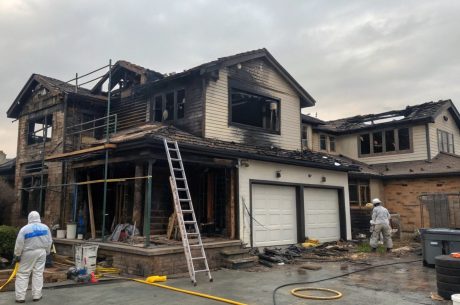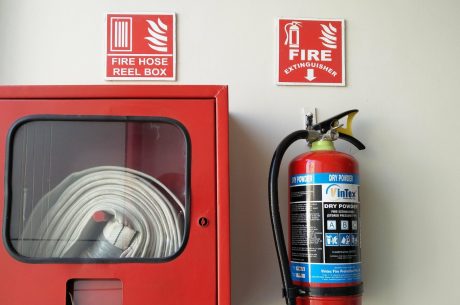Experiencing a house fire can be one of life’s most traumatic events, leaving survivors facing much more than just property loss. Beyond the charred remains of physical belongings lies a deeper, often unseen toll: the profound emotional and psychological impact. While insurance policies and restoration experts can replace walls, floors, and roofs, healing the emotional scars requires compassion, empathy, and a deeper understanding of trauma.
In this blog, we’ll explore the emotional recovery after fire and how professional fire damage restoration teams contribute significantly not just to physical repair but also to emotional recovery. They offer hope, reassurance, post fire safety, and a sense of stability when it’s needed most.
The Emotional Toll of House Fires
A house fire can be one of the most devastating experiences a person or family goes through. Beyond the physical destruction of property, the emotional and psychological effects can linger long after the flames are extinguished. The home is often a place of safety, routine, and identity. When that is suddenly taken away, it can leave individuals feeling vulnerable, uncertain, and overwhelmed. Understanding these emotional responses is an important part of the recovery process, and acknowledging them can help survivors begin to heal.
People affected by fires often experience:
- Shock and Disbelief: In the immediate aftermath, victims may feel disoriented and emotionally numb. The suddenness of the event can make it difficult to process what’s happened.
- Grief and Loss: Even if no lives were lost, the emotional attachment to a home and personal belongings can trigger a deep sense of grief. Family heirlooms, photographs, and personal treasures often can’t be replaced.
- Anxiety and PTSD: The fear of recurrence or even the memory of the fire can lead to anxiety disorders, sleep disturbances, and post-traumatic stress disorder.
- Disruption of Routine and Stability: House fires often force people to relocate temporarily or permanently. This sudden displacement disrupts routines and adds further stress, particularly for children and the elderly.
How Fire Damage Restoration Experts Provide Support
Professional restoration companies are not therapists, but their work significantly contributes to the emotional recovery after fire by restoring a sense of normalcy. Here’s how:
- Rapid Response & Reassurance: Reputable fire damage restoration teams respond quickly, assess the damage, and start mitigation right away. Their prompt action helps reduce stress and provides survivors with a sense of control.
- Clear Communication and Transparency: Good restoration companies keep homeowners informed throughout the process. Having a clear plan and timeline can significantly ease anxiety and reduce emotional distress.
- Salvaging Sentimental Belongings: Professionals often use advanced techniques to recover and restore sentimental items like photographs, documents, or heirlooms—providing immense emotional relief.
- Creating a Safe, Livable Space: Beyond structural repairs, restoration experts ensure the home is safe and clean, removing soot, smoke odor, and contaminants. This plays a big part in making families feel secure again.
- Working with Insurance: Handling insurance claims can be confusing and frustrating. Restoration experts often assist with documentation and communication with insurers, easing another major burden for families.

Supporting Emotional Recovery After Fire Through Compassionate Service
While their primary job is to restore property, many fire damage restoration professionals recognize the emotional needs of their clients. The best providers take a compassionate, empathetic approach, acknowledging that they’re not just rebuilding homes but helping rebuild lives. According to the American Psychiatric Association, “following a disaster, many people experience distressing thoughts, feelings, and physical symptoms, and may engage in risky behaviors to help cope.”
Here are practical ways to support emotional recovery after experiencing a fire:
- Open Communication: Allow yourself to express emotions freely. Seek comfort through conversations with therapists, support groups, or trusted loved ones.
- Maintain Consistency: Establishing daily routines, no matter how small, can restore a sense of stability and control in times of upheaval.
- Recognize and Celebrate Resilience: Find comfort and hope in cherished items, memories, and relationships that endured through the fire.
- Practice Patience: Emotional healing is a journey; take each day as it comes, acknowledging that recovery happens gradually with compassionate support along the way.
Conclusion
A house fire is more than a property disaster; it’s a personal trauma. The emotional recovery after fire takes time, care, and the right support system. Thankfully, fire damage restoration support is not just about repairing homes; it’s about helping people heal.
By combining professional expertise with empathy and communication, restoration specialists play an essential role in helping survivors move forward physically and emotionally. If you or someone you know is recovering from a house fire, know that help is available both emotionally and practically.
FAQs
Q1. What is emotional recovery after a house fire?
A: Emotional recovery after fire involves the psychological and emotional healing process that follows the traumatic event. It includes coping with shock, grief, anxiety, and stress.
Q2. How can fire damage restoration support help emotionally?
A: While restoration professionals primarily repair physical damage, they also contribute to emotional healing by restoring safety, salvaging sentimental items, and guiding homeowners through insurance and repair processes.
Q3. How long does it take to recover emotionally after a fire?
A: Emotional recovery after fire varies by person. Some may feel better in weeks, while others take months or years. Recovery depends on factors like resilience, the extent of loss, support systems, and access to mental health care.
Q4. What should I look for in a fire damage restoration company?
A: Look for experienced companies with 24/7 service, certified technicians, and a strong reputation for communication and empathy. The best also supports your emotional recovery
Q5. Is it normal to feel anxiety or depression after a house fire?
A: Yes, it’s normal to feel anxiety, depression, or PTSD after a house fire. If symptoms persist, seek help from a mental health professional. Support and restoration services can ease recovery.




 PuroClean of San Clemente
PuroClean of San Clemente